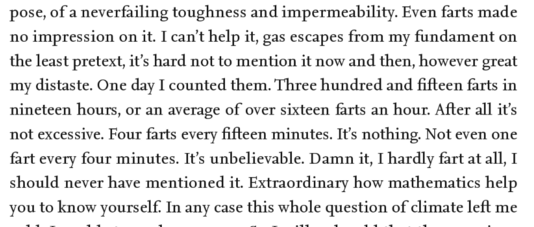As universities worldwide face major cuts, especially to the humanities, this meme has been doing the rounds. So I thought I’d share my story about Indiana Jones’ last day of work, drawn in part from Indiana Jones and the Dial of Destiny.

Image: Pic of Indy punching a nazi with text: I came here to study the humanities and punch nazis. And they just cut funding for the humanities.
Indiana Jones, whose front row students once wrote “I love you” on their eyelids, now faced a half empty lecture theatre of students who hadn’t done the reading. OK, he says, let me tell you what was in the reading and then we will do the lecture. But shorter. Of course, Indy knew that the students hadn’t done the reading because they were all forced, under cost of living pressures, to work 12 hour days as disability support workers, supermarket shelf-stackers and Starbucks baristas.
Then Indy went to a Faculty meeting where management explained that “research showed” (cos if anyone cares passionately about painstaking, expensive high quality research, as we know, it is university management) that student consultation, individual feedback or indeed anything else that helps each student become the historian or archaeologist that only they can be, is useless and therefore not included in his workload.
A little dispirited, Indy returns to his desk. Sure, he has to find the desk under a large pile of carefully labelled artefacts that he insisted belongs in a museum. They are on his desk, however, because Indy can’t for the life of him find a museum that will take them. Funding cuts they all say, we can’t possible store, preserve or display anything else. We just don’t have the staff or equipment for proper conservation. Or the space! Who has space, anymore? Plus museum visitors these days really prefer to see Lego models of ancient artefacts. We have to go where the money is. Money is, after all, what museums are for.
Locating his 1991 Apple Portable, which is the most recent computer that Indy’s Arts Faculty can afford, Indy endured the extremely slow campus wifi to check his email. While he waits for the emails to load, he stares out the window. Across the brand new paved corridor through campus, which management claims will soon be lined with groovy shops and cafes, the 24-storey administrative building named after the last Vice-Chancellor glimmers conspicuously in the sunlight. I bet they have newer computers over there, Indy reflects.
The emails load, finally. Indy has several very long emails explaining how he has to manually copy and paste last year’s learning outcomes into a new template even though nothing has changed, just in case one year they want to change one of the regulations no one reads. It is a legal thing.
Ping! Another meeting. This time by zoom. Naturally Indy’s internet connection is too slow, so he keeps his camera off. Actually, the camera doesn’t work at all, but Indy doesn’t realise that until the end of the meeting.
Leading the meeting is a former academic, a colleague of Indy’s, now a low level manager because her teaching load was deemed unnecessary (she only taught historical and archaeological ethics, no one needs that) and she never had a research workload anyway. Having valiantly taken what amounted to (so she was assured) a promotion, she informs the team that archaeological field work needs to be cut, because the latest educational research shows that archaeologists learn best by self directed quizzes and ten minute videos.
Indy can’t get his microphone to work and is unable to object.
Under Any Other Business, the scholar-turned-manager makes the gentle suggestion that team meetings should be ‘camera on’. Someone turns on their camera to remind the manager that cameras off can be important for neurodivergent people. Indy is unable to explain that his camera isn’t working because the manager, fearing staff dissent over the cutting of field work, selectively disabled chat. Actually, she just blocked Indy.
After enduring this ‘teamwork’, Indy crosses the paved thoroughfare to the new shiny building named after the last Vice-Chancellor to attend a consultation workshop. Seated in a plush meeting room with its own deluxe coffee machine, Indy is given an opportunity to ’ask questions’ as part of the staff centred consultation on authentic assessment and real work simulation in archaeological teaching. Shaken by the loss of fieldwork, Indy can’t quite imagine what questions he should ask, which the educational developer in charge of rolling out the expensive and completely unnecessary new eLearning tool (it was a friend’s pet project – they’d poured their third university redundancy payout into the start-up and definitely deserved support from well-placed friends across the sector) takes as enthusiastic support.
When he goes outside again, Indy has to fight Nazis who want him to acknowledge that he’s a secret agent for leftist woke thinking and has Soros sponsorship. It is Thursday, after all.
Finally, just when Indy is thinking about heading home, he’s confronted with urgent questions from his head of discipline, about whether a formula privileging real world application or field defining thinking is most important in deciding who gets the best classroom next year.
So Indy shakes his head and steps into the Room of Retirement, where he is predictably handed a clock as thanks for his – ahem – time teaching and fighting Nazis. Indy looks across to the brand new building named after the last Vice-Chancellor and thinks of all his colleagues whose redundancies went entirely unacknowledged, even by managers with whom they worked closely. He feels almost grateful.
A little woozy from the day’s dizzying lack of actual research or teaching, Indy steps outside. Handing the clock to a homeless person, he heads off purposefully. The Nazis still need fighting, after all.

